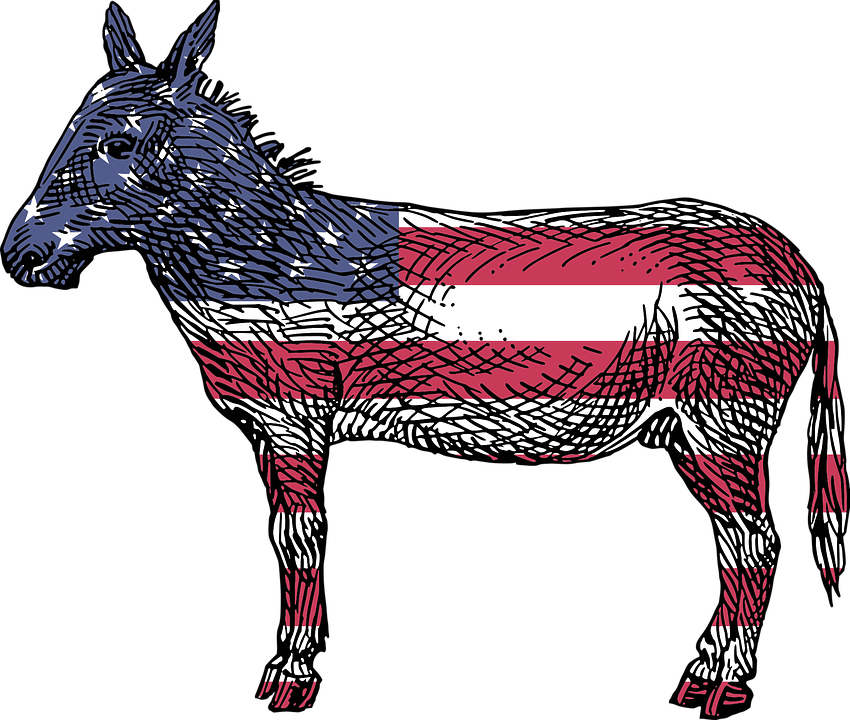|
The Breadcrumbs widget will appear here on the published site.
Highlights of the First Primary Debate - What You Need To KnowBy Joanna Patzig If you’ve been following the Democratic primary race you know that there are a ton of candidates, so many that even split into two rounds not all of them could be part of the first debates. While it’s still early in the race, the first debates helped a diverse field of candidates distinguish their agendas and policies. A few candidates really set themselves apart, while other major candidates lost ground. Most of all the debates reflected the democratic quandary of how to defeat Donald Trump, and a struggle over the role of socialism in domestic policy. The debates came at a point in the news cycle where many Americans are outraged by news of human rights violations at the border, and Trump’s foreign diplomacy (or lack thereof) with Iran. Many of the candidates talked about how Trump has changed the United States for the worse — Biden said at the end of the second debate “Trump has ripped [the soul of this nation] out.” The debates we’re understandably focused on issues of immigration, foreign policy, and climate change, all of which will be definitive concerns in 2020 election.
Twenty candidates qualified for the first debates, and were split randomly into two groups. The front runner in the poles going into the first debate was Senator Elizabeth Warren, who went head to head with other candidates with some name recognition including Congressman Beto O’Rourke and Governor Jay Inslee. Senator Warren did well, as expected, delivering her detailed policy proposals like taxing the 1% and free college with characteristic sharpness. Congressman Beto O’Rourke of Texas may have lost ground that night. He immediately started speaking in Spanish - which many candidates did over the course of the night — but it didn’t come off as super fluent, and some are describing it as pandering. Congressman Julian Castro is a lesser known candidate who stood out, he directly challenged O’Rourke about immigration successfully, and he also pledged support to gender equality. Tulsi Gabbard didn’t get a lot of air time but she was very composed and questioned about Iran in particular because of her military background. Identity politics played a significant role in these debates; Senator Cory Booker talked about the experience of gun violence in his neighborhood, and DeBlasio referenced the experience of his black son and his own progressive accomplishments in New York. Finally, Senator Amy Klobuchar came off as a very reasonable moderate with firm economic plans, a highlight was definitely her smack down of Governor Inslee’s insistence of his support of choice. Klobuchar simply said“ I just want to say, there’s three women up here that have fought pretty hard for a woman’s right to choose. I’ll start with that.” before outlining her own position. Overall the night was fairly civil although the 60 second answer times were difficult. The second night had more big name candidates including Joe Biden, Bernie Sanders, Kamala Harris, and Pete Buttigieg and a number of candidates who are known for single issues including Andrew Yang, Kierstan Gillibrand, and random author Marriane Williamson. Harris was the winner of the night in my opinion, she spoke well and even humorously at times. She provocatively attacked Joe Biden for supporting segregation and Biden's answer seemed unprepared and out of touch. Other candidates went after Joe Biden as well — especially Congressman Swalwell who mocked him throughout the night by saying “pass the torch” in reference to his age and experience (which is proving to be more of a liability than an asset.) Biden was one of the more moderate voices of the night and some of his policy proposals seemed unconvincing and tied to his relationships with corporate donors. Overall he emphasized his closeness to Obama rather than answer real questions. Bernie Sanders held his ground on the issues he fought for in the 2016 election. Buttigieg, the mayor of South Bend, Indiana, fielded questions about a recent police shooting in his hometown gracefully, and defended his moderate positions well. Marriane Williamson, the self help author, spoke about issues more broadly and holistically than others, but also came off as a little strange (read her old twitter feed here for an idea.) Kierstan Gillibrand distinguished herself with her final statement about passionately fighting for women's rights as a president. It’s still too early to tell who will win this primary, or even who will make it to the next round of debates this fall. This field of candidates is refreshingly diverse, and voters should pay attention to the campaigns and consider the candidates policies, backgrounds, and effectiveness against Trump. Personally, after watching the debates I’ll be keeping my eye on Harris and Warren as front runners, but I believe rising star candidates like Castro, Booker, Klobuchar and Buttigieg also have a real chance at this election. I did leave out some candidates and points in this quick and dirty breakdown, and I encourage everyone to watch the debates, if only for the quick paced entertainment.
0 Comments
CommentsYour comment will be posted after it is approved.
Leave a Reply. |
AuthorWrite something about yourself. No need to be fancy, just an overview. Archives
March 2024
Categories
All
|



 RSS Feed
RSS Feed






